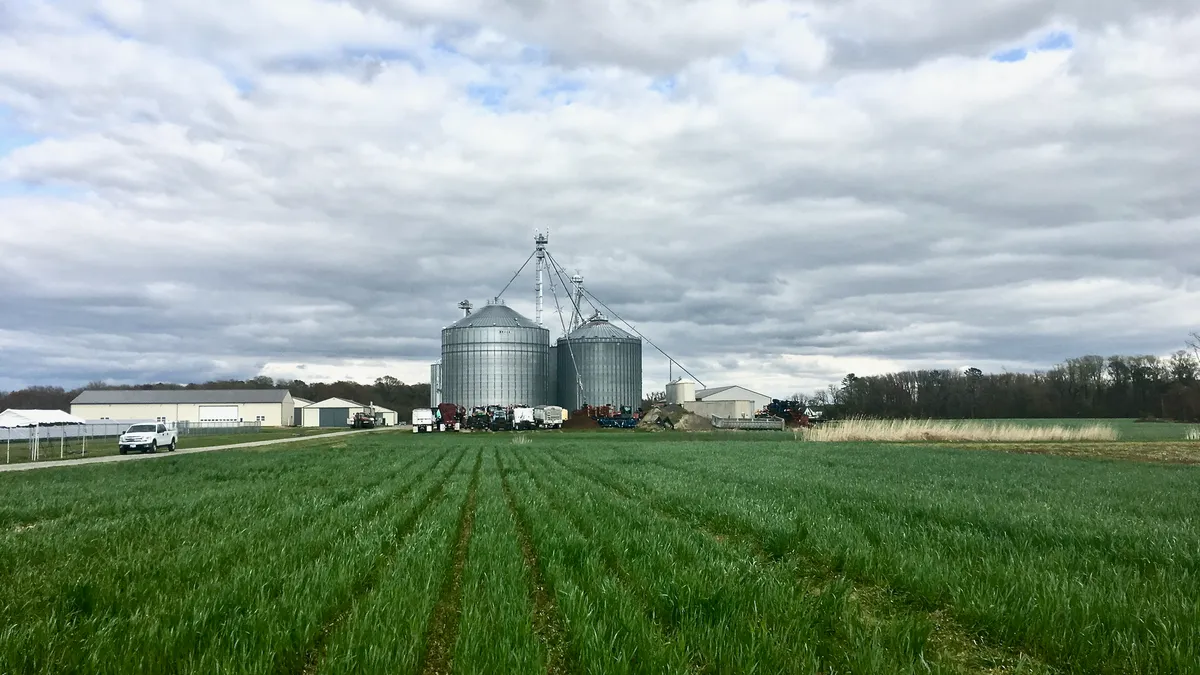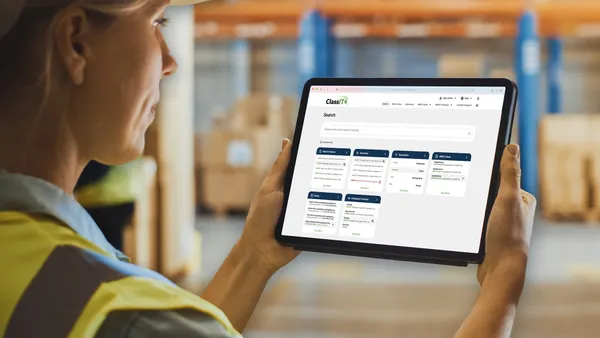Dive Brief:
- The world's four largest grain traders are banding together to replace paper-based processes —namely contracts, invoices, and payments — with digital ones to increase reliability, efficiency and transparency, according to a press release.
- Archer Daniels Midland Company (ADM), Bunge, Cargill, and Louis Dreyfus Company (LDC) have teamed up to develop standardized tools to digitize agrishipping with the initial goal of automating post-trade execution processes.
- "The companies also seek broad-based industry participation to promote global access and adoption," reads a statement jointly issued by all four players.
Dive Insight:
Grain trading has been around for quite a while and remains a manually-managed industry.
Currently, grain trading transactions, like most ocean shipping, are almost entirely paper-dependent. But beyond digitizing, the traders also seek to reduce the 275 million emails sent annually by commodity traders to process 11,000 shipments, according to Reuters.
Several of the big four global grain players have previously been working on their own technology solutions for trade financing and traceability, but so far nothing has led to a fully-scaled program or platform.
Louis Dreyfus completed what it claimed to be the first blockchain-enabled agricultural commodity transaction in January this year, according to CEO Ian McIntosh. Cargill, by comparison, completed a transaction for a shipment of soybeans traveling from Argentina to Malaysia via a blockchain platform in May.
"By working with the industry to adopt standardized data and processes, we can truly harness the full potential of emerging technologies to improve global trade," said McIntosh.
But this joint initiative may be a sign that the players feel automation and efficiency are better shared benefits rather than competitive advantages. A Bunge spokesperson told Supply Chain Dive the players recognized that past initiatives to modernize this industry had failed because of a lack of cooperation, and that any lasting solution needs to be industry-wide. The same spokesperson named the oil industry's VAKT platform and KomGo as possible blueprints for creating a custom digital trade platform for grain.
A similar tack is in progress on ocean-shipping more broadly with TradeLens, the Maersk-IBM blockchain initiative, which is seeing industry-wide cooperation from various stakeholders. But issues around competitive advantage may be slowing down momentum; other carriers are wary to join with Maersk at the top of the bill.
A key difference here is that no one player is leading the effort.
Soren Schroder, Bunge’s CEO, said, “We expect an industry-wide initiative of this nature to be able to accelerate improvements in data management and business processes, and bring much-needed automation to the industry.”
Several startups are also working on digitizing grain transactions including AgriDigital, an Australian blockchain-backed supply chain management and traceability technology startup founded in 2015 — though its initial focus has been on the farm-side of the supply chain. The startup claims to have 1,300 users and has verified A$360 million ($276 million) in grower payments since 2016.
"This recent announcement is a welcome sign. Global agricultural supply chains are under pressure and the embedded problems of access to technology, finance and data affect all participants," Emma Weston, CEO of AgriDigital, said in an email to Supply Chain Dive.
"We are really interested in what happens next after this announcement — what does it mean in practice and what are the next steps," Weston said. "This is a great opportunity for these multinational commodity traders to engage with the broader tech community and we are ready for that engagement."
Whether more streamlined transacting comes from a startup or a corporate initiative, experts agree that the most important element will be interoperability, which is another reason that cooperation is paramount.













